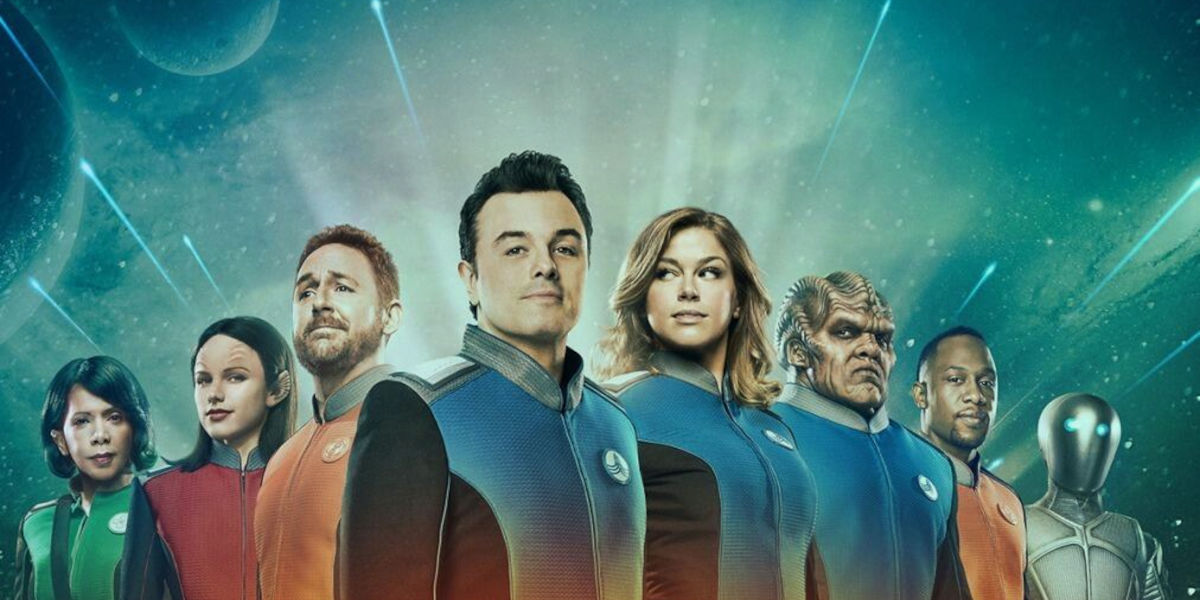Interstellar exploration, alien civilizations, and deep-space adventures - these themes have been constantly served and savored on the platter of science fiction television. Two titans that have left indelible imprints on this genre are 'Star Trek,’ a revered classic, and 'The Orville,' the bold entrant.
This article will initiate a stimulating discourse on 'The Orville vs Star Trek,' examining how these series have reshaped the contours of space exploration narratives. If you're a fan curious to dive deep into this riveting exploration, we suggest strapping in because this is going to be an interesting ride through galaxies, life forms, and narratives aurally light years apart.
The Orville Series Review: A New Foray into Space Exploration
Helmed by the maestro of humor, Seth MacFarlane, 'The Orville' is a commendable plunge into the realm of sci-fi, offering a mix of drama, adventure, and comedy. The series is a charming pastiche of classic space expeditions and modern sociocultural contexts. It thrives on a motley crew navigating the perils and puzzles of infinite cosmos, each member contributing to the dynamic personality of their ship, The Orville.
From intriguing storylines and commendable performances to thought-provoking socio-political themes, 'The Orville' demonstrates a careful concoction of humor and moral dilemmas. It deviates from the somber seriousness of the conventional space drama and thus, has successfully etched its unique identity among space-traveling epics.
The Orville vs Star Trek: A Clash of Galaxies
While 'The Orville' charms with its humor-laden dialogues and characters that mirror our contemporary society, 'Star Trek', on the other hand, is an emblem of pathbreaking sci-fi drama. It presents a utopian vision of the future where humans and alien species thrive on values of peace, unity, and intellectual growth. This ever-evolving universe introduced by Gene Roddenberry, has been winning hearts for over five decades and continues to spin off new series.
'Star Trek' and 'The Orville,' despite belonging to the same genre, follow different narrative techniques. Where 'Star Trek' is more contemplative and focuses on the diplomatic and exploratory nature of space expeditions, 'The Orville' spices up the narrative with conversational humor and easily relatable characters. No evaluation of these two is complete without comparing their iconic spaceships. Starship Enterprise, a symbol of human achievement in Star Trek, and The Orville, a mid-level exploratory vessel in the Union fleet, embody the spirit and ethos of their respective series.
Deep Dive into the Narrative Arc and Characters
The most significant distinction between Star Trek and The Orville is the narrative arc and character development. Star Trek, specifically the more modern manifestations, has a storyline that spans episodes, making it about the journey as much as the destination. On the other hand, The Orville opts for a more episodic format, reminiscent of Star Trek's original series.
In both series, the characters are an integral part of the narrative. Star Trek blends high concept science fiction with complex, diverse characters' stories. In contrast, The Orville, while not neglecting character development, relies more heavily on humor and satire, injecting an element of comic relief into its narratives.
Interestingly, The Orville's approach to some themes has been deemed fresher than Star Trek's, and this might be attributed to its lighthearted approach. By using humor, The Orville can tackle serious themes with less heaviness, placing the audience in a lighter, more receptive mindset. For instance, gender and sexuality are intricately explored with a comedic lens, subtly delivering powerful messages.
The Balancing Act: Comedy and Drama
The Orville manages to balance comedy and drama, largely thanks to its creator and lead actor, Seth MacFarlane. Using his comedic experience, MacFarlane ensures that the humor in The Orville never undermines the drama. On the other hand, Star Trek: Discovery has a more serious tone, making it more of a pure drama series.
Star Trek has at times been criticized for its almost utopian representation of the future. The Orville, in contrast, is not afraid to depict the future as deeply flawed, humorously pointing out social and cultural issues that linger. Ironically, in this sense, The Orville might be a more realistic portrayal of the future, with its mix of advanced technology and persisting societal problems.
Viewer Reception and Impact
Star Trek’s legacy is undeniable, having enthralled audiences for over 50 years. It has spurred numerous spin-offs, movies, novels, and fan conventions. Despite some hiccups along the way, it remains a beloved franchise. The Orville, being considerably newer, still has a lot to prove - but its strong start and positive viewer response suggest it’s up to the challenge.
To make a real comparison here is tricky - the two shows are different beasts, each appealing to different types of viewers. Star Trek has always been aimed at more serious sci-fi fans, while The Orville seems to cater to viewers who want a blend of humor with their space opera. In the final analysis, both shows clearly have a home among fans of the sci-fi genre.




